Pandemics create a state of alert, enforcing changes in daily behavior. The COVID-19 outbreak introduced the new normal into our everyday life. Social distancing and isolation have become conventional for prevention and safety. However, drastic changes in conduct take administration and direction.
The Lodhran Pilot Project (LPP) has initiated the Behavior Change and Communication (BCC) Campaign on preventative measures. The movement is centered around raising awareness among the mass population. The BCC seeks to enable targeted communities and the country with the right practices and information in light of COVID-19. It is also using knowledge to instill behavior. They have customized IEC materials in the local context and ensured maximized sensitization.
The LPP is one of the 170 local organizations that make up the National Humanitarian Network (NHN)– a network that is one of the founding members of our national partnership, the Pakistan Resilience Partnership (PRP). The organization highlights how locally-led action is taking charge during the COVID-19 pandemic.
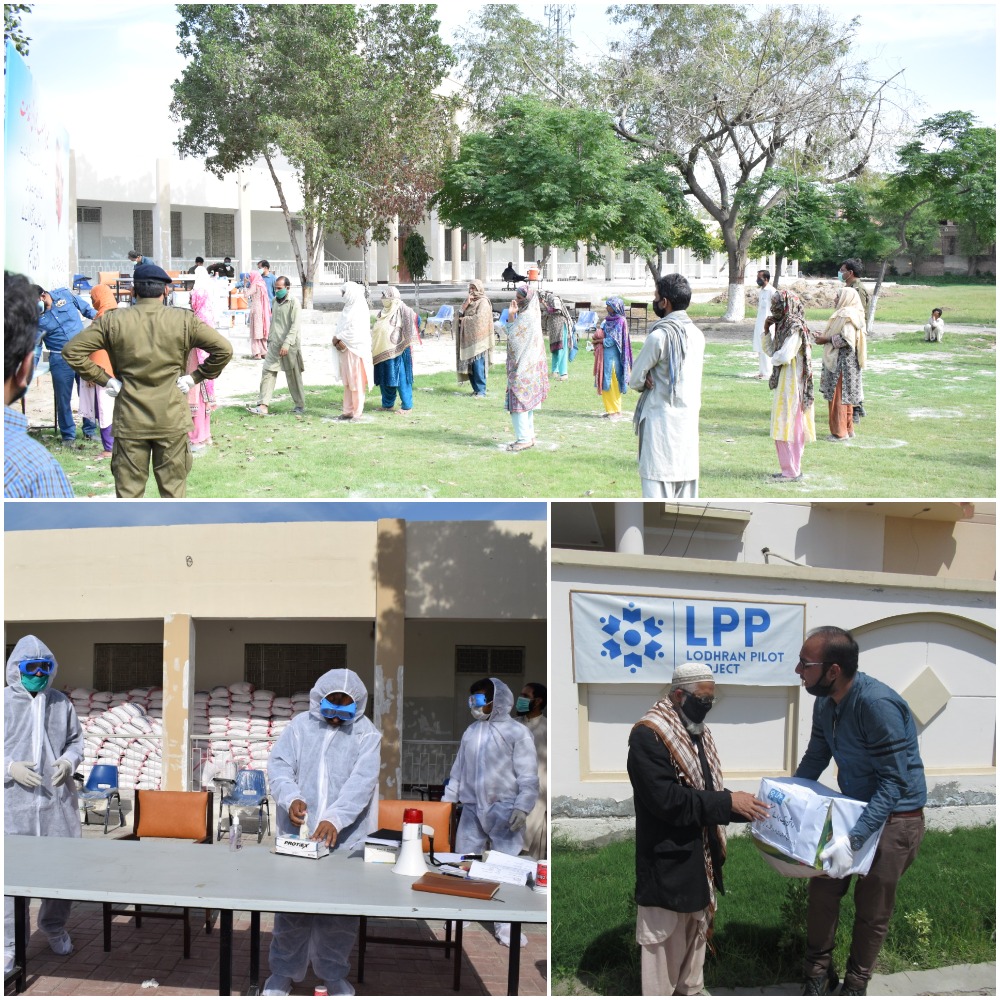
Agents of Change From Within
The LPP recognizes that the most compelling change-makers are members at the grassroots level. They have registered 450 community resource persons (CRPs) that include local religious leaders, and some of the local staff members to mobilize the campaign in Jhang, Multan, and Lodhran. CRPs are the torch bearers in most developing countries. They reach the remotest parts of communities that are often neglected during disaster events. The BCC campaign has sparked the knowledge that equips CRPs to inform and impart knowledge in their regions. The campaign started with an orientation with these community leaders that included guidelines for social distancing, handwashing, the use of face masks, and overall prevention measures of COVID-19.
Understanding the weight of preventive measures is the key to introducing it within the community. These leaders have made it their mission to spread the awareness campaigns across their communities through door-to-door visits, announcements from mosques and communication mediums, displaying informative banners, and delivering aid in villages.
Clocking in for Aid
COVID-19 conditions require elevated measures when performing essential activities. The LPP started its emergency response following the Standard Operating Procedures (SOPs) issued by the World Health Organization (WHO) and the Government of Pakistan. The organization has distributed masks, hand sanitizers, soap, and installed handwashing points at vegetable markets. The cost of food baskets in Pakistan has increased by 80% between 2007 and 2017. The demand has led the lowest two quintiles to allocate approximately 60% of their income on food.
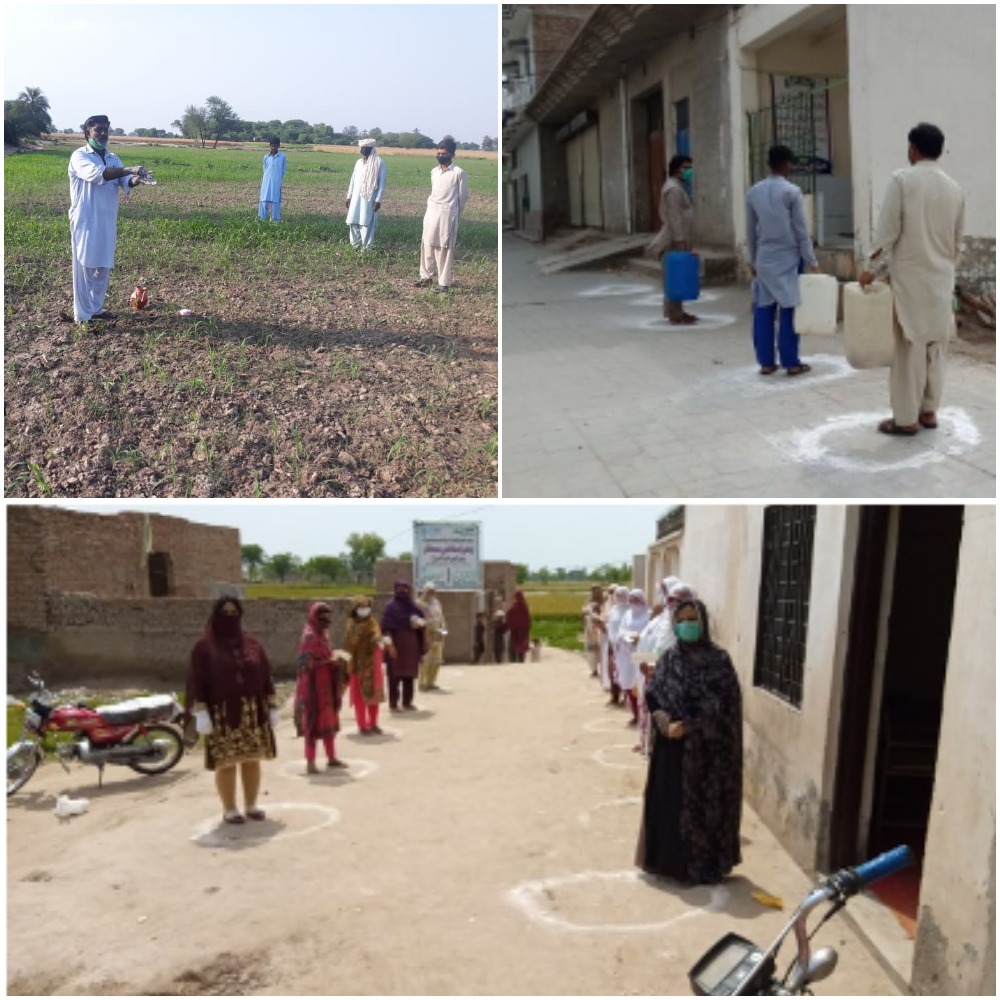
The organization has also distributed 11,000 ration packs to daily wagers, elderly, widows, persons with disabilities, and minorities in Lodhran (9,400 ration packs), Multan (1,400 ration packs), and Jhang (200 ration packs) during the lockdown. Funding and distribution were a collective effort of LPP volunteers and community emergency response teams. The packs consist of 20 kilograms of flours, six kilograms of lentils, three kilograms of sugar, three liters of cooking oil, one pack of chili, one pack of salt, and four bars of soap.
The CRPs were essential in executing every step of these distributions. They enlisted and identified the most deserving families in their localities. Going the distance was not a challenge for these community advocates. Once these areas were identified, 15 to 20 community members handed out food rations at the family’s doorsteps.
Tuning in to the Same Frequency
Knowledge resonates the loudest when our voices are unified in its messaging. COVID-19 has led to a vast influx of disinformation. CRPs and religious leaders have collaborated with FM radios and social media campaigns to broadcast the right messages to a wider audience. The LPP initiated the C-19 Social Media Awareness Campaign through various channels. It reached 465,932 individuals via Facebook, 9,510 individuals via Twitter, and 1,270 individuals via a Whatsapp group in Lodhran.
The organization signed a memorandum of understanding (MOUs) with FM-98 in Lodhran, FM-100 in Multan, and FM Radio Awaz in Jhang to circulate key messages. They have reached 500,000 people in all three districts through the radio channels. The circulation of such messages has promoted adaptability towards safety measures. Recipients of ration distribution now form social distance queues. Hand washing and using face masks have become widely accepted practices and they are being adopted in everyday settings such as the vegetable markets.
Delivering the Demonstrations
Maintaining the functionality of rural water supplies is a high priority for improvements and sustainability for the government. Many rely on communal sources for everyday water consumption and mass collection becomes a critical point for spreading the virus. Pakistan allocated $973 million of its fiscal budget in 2018 towards WASH. Fortunately, proper knowledge management has enforced social distancing from source points such as water filtration plants, public latrines, and handwashing facilities.
The LPP displayed information, education, and communication (IEC) materials reflecting social distancing and wearing masks at its water purification plants. The content was developing according to the WHO, UNICEF, and the Government of Pakistan and Punjab official guidelines. The community volunteers marked social distancing circles because visual markers support a better understanding of social distancing in these locations.
Wheatfields are a part of Pakistan’s landscape with approximately 9 million hectares (40% of national cultivated land). Eight out of 10 farmers participate in wheat cultivation and production. The agricultural sector employs more than 80 million people which makes it essential to apply social distancing practices when these workers enter the field. The LPP and the CRPs have taken their teaching to these farms by forming the Community Emergency Response Teams (CERTS).
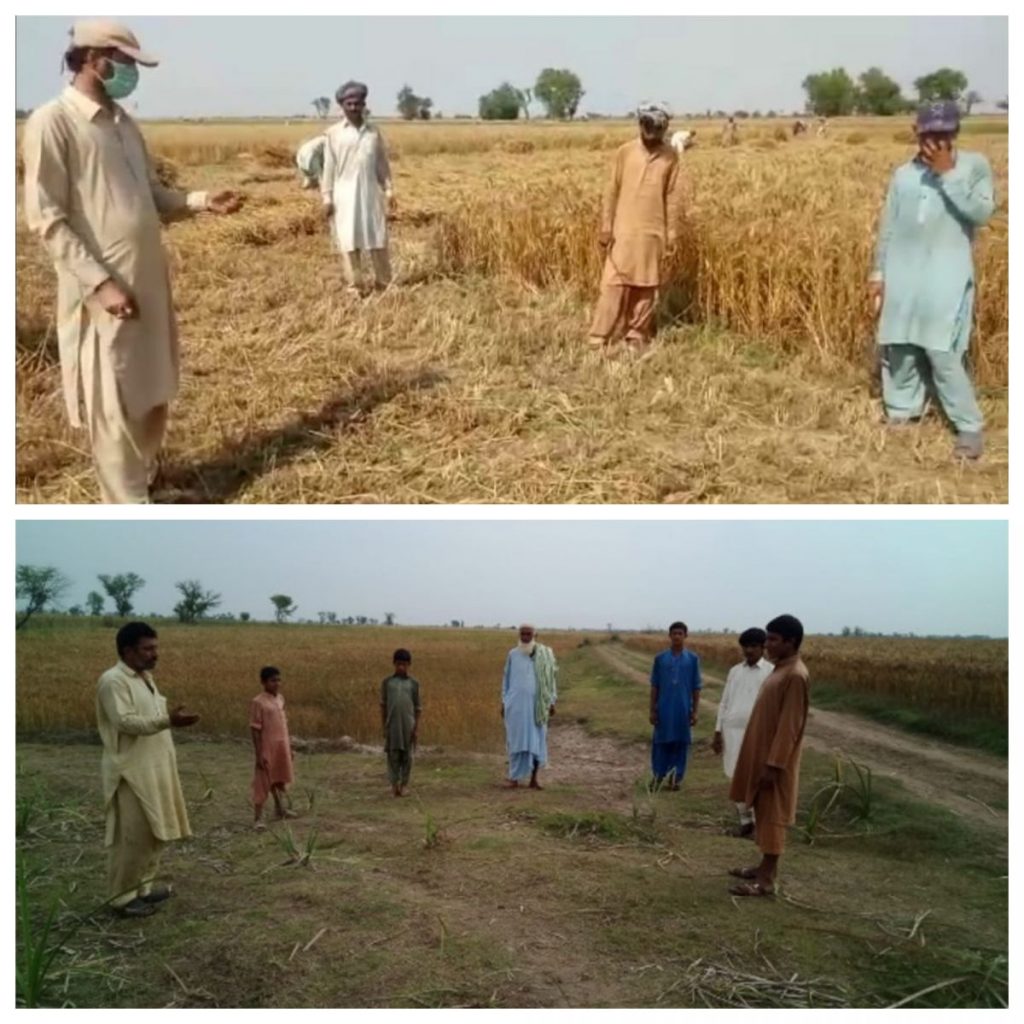
The CRPs have carried out orientation to teach social distancing practices. Farmers that harvest knowledge and behavior practices ensure each other’s safety. The organization has conducted 25 sessions reaching 180 farmers in Jhang, and 28 sessions reaching 190 farmers in Lodhran. The CERTS have joined hands with local mosques, utilizing the institutes’ loudspeakers to reach over 5,000 farmers during the harvesting season.
Organizations such as LPP remind us that taking action is a society’s greatest advantage. Equipped with the right knowledge, a community becomes the orchestrator for adaptive and progressive behavior.
The NHN was established after the 2010 floods and earthquake with the vision to address limited support and information exchange during emergencies. It is in line with the national priority on disaster management. The NHN capacity building initiatives, sharing of in-country/ regional updates and information packages, and policy focus to the entire spectrum of disaster management with greater attention to DRR.
The PRP has promoted the mobilization of the media and academic and research on advocacy and awareness in the field of disaster management. It has also contributed to drafting the National Disaster Response Plans (NDRP) 2019. The plan recognizes the changing environment and disaster management mechanism in Pakistan.
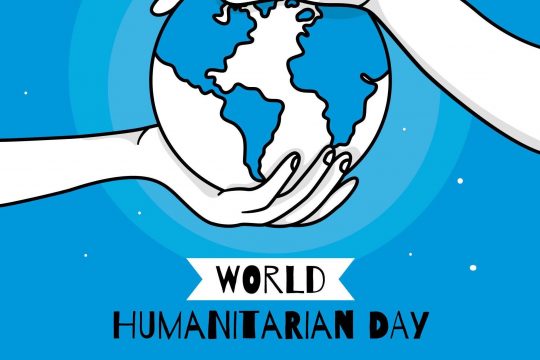
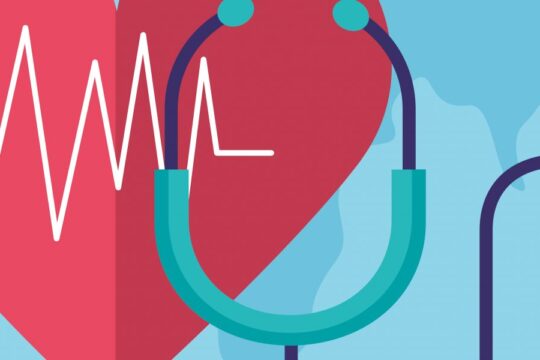

Comments are closed.